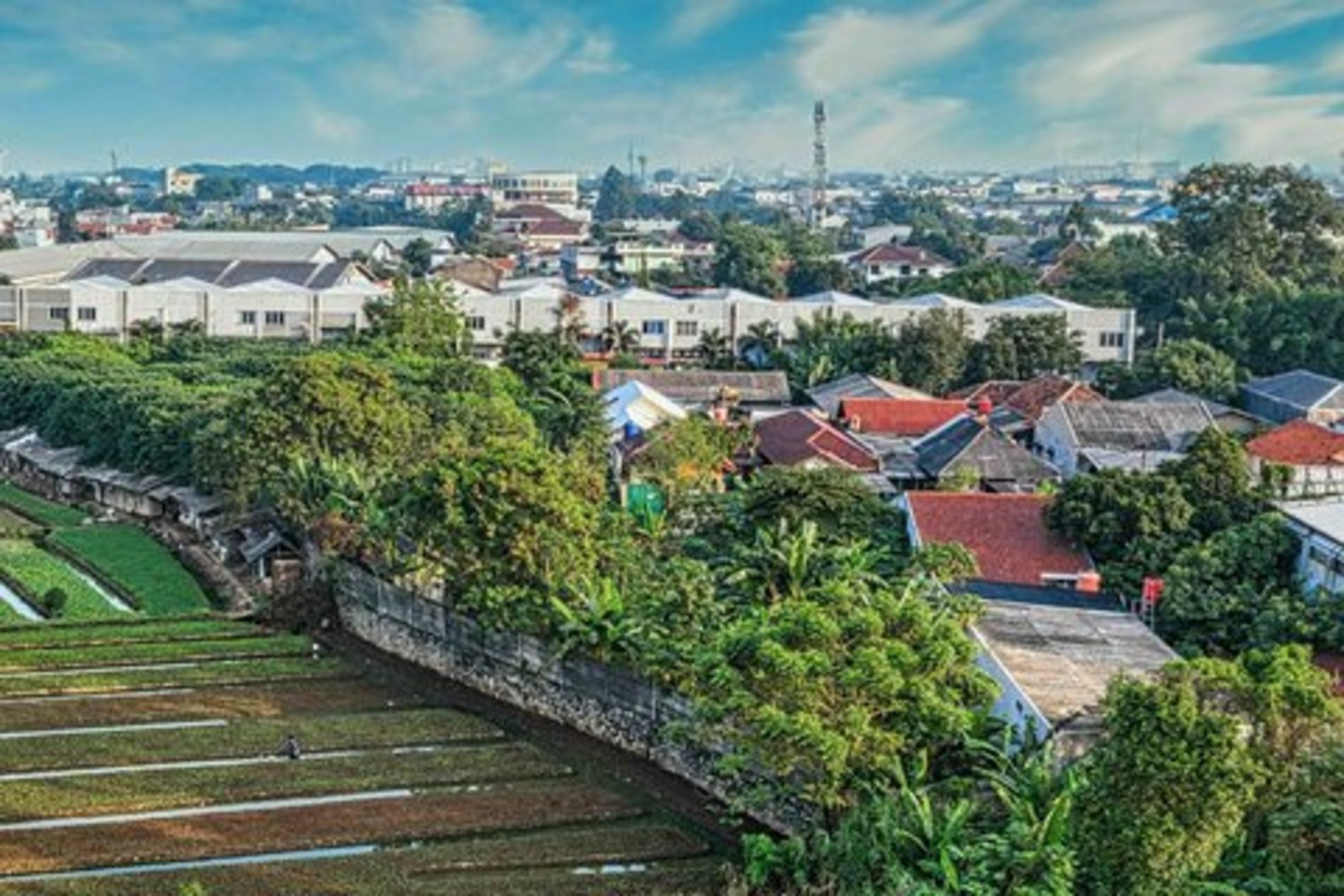A Conversation with Debra Roberts
Stanford Woods Institute for the Environment
On May 6, Debra Roberts, head of the Sustainable and Resilient City Initiatives Unit in the eThekwini Municipality (Durban, South Africa) and Co-Chair of Working Group II for the Intergovernmental Panel on Climate Change (IPCC) joined Chris Field, director of the Stanford Woods Institute for the Environment, in a conversation on the future of climate change assessment and policy and climate adaptation in Africa and beyond.
Watch the video of this event.
Why do you think the IPCC is so influential?
I think the IPCC is still influential, and increasingly solid, because it's the conduit into national governments in a COVID world and hopefully one day a post-COVID world. The key resources are increasingly being localized in international governments again and so if we're keen on turning that climate dial, we really have to influence the national government debate and the IPCC is one forum, which brings 195 governments together to develop an understanding of what the science tells them about the causes, impacts, and responses of climate change. It's this remarkable co-production system between science and national governments, which hopefully leads to an increased awareness of what action options are, and how we move towards better, more equitable and sustainable world.
How can voices in developing nations be more empowered in terms of climate science and the IPCC?
I’m the first local government practitioner who's ever been a co-chair of the IPCC. Two focal areas leapt out to me: how do I improve the awareness of the IPCC in Africa; and how do we bring forward an awareness amongst those people who actually drive change at the local government level. Now that's taken an enormous amount of effort. We're just readying ourselves now for large scale outreach in Africa, where we are taking the information of the three special reports out into two African research and policy communities. It's been an extraordinary amount of work to take those global assessments and mine out the Africa-specific messaging and putting it down in a way that would make sense to Africans using communication experts. We've also done a lot of training in South Africa and plan to do outreach in Africa on how people can access the IPCC. This last week we spent most of it with a group of African postdocs, the IPCC is virtually unknown to them.
In the city space, we’ve worked through a very large co-sponsored conference back in 2018, in order to draw the practitioners, policymakers and scientists into the room to discuss how cities could act more effectively on new science, and that's had all sorts of spin off effects. The global Covenant of Mayors has developed a research agenda, UN Habitat and the global covenant are now launching a second major workshop in preparing for the special report on cities, which will happen in the seventh assessment cycle. So, over and above the main assessment work, it's really been this mining of information, talking to people, training people, and creating opportunities for conversations that have never occurred in the IPCC before.

What are the key messages from the three special reports from the IPCC that have stayed with you the most?
The 1.5 degrees Celsius message was probably the game changer. That was the umbrella report and we use the land report and ocean and cryosphere report to bring nuancing to that 1.5 degrees message. That message was that every degree of warming matters and certainly the scientific community was quite ambivalent about the invitation from the United Nations Framework Convention on Climate Change. When we were asked to focus in on 1.5 degrees of global warming, the big take home message was yes, half a degree actually matters, every element of warming matters, it's very clear that every year that we delay matters. Every choice matters. We need a whole of society response. No one can opt out, so we have to find a seat at the table for everyone to play a part in the climate change response.
What are some of the steps that you've taken in your community and around Africa that have begun to make a difference in terms of climate adaptation?
I think adaptation is always the most difficult element of the response toolkit to bring to the table, but certainly given the vulnerability and inequity that are encountered in many parts around the world, not least in Africa, adaptation is at the top of the immediate short-term agenda for most African countries, just simply because of the large scale risks our populations are exposed to and the high levels of vulnerability because of under development, and the resulting exposure that we find in those communities. Adaptation is certainly a priority for a continent like Africa and certainly for the city.
I work in Durban where we're a coastal city. We've got huge exposure from our infrastructure to storm surge and river flooding. What we've done in terms of our adaptation work is look to opportunities to tie development needs into the adaptation space because adaptation is tricky. In many ways you are asking people to invest in things that they can't really see, or might come in the future, and yet, you still have vast needs in terms of housing underdevelopment and basic infrastructure. So what we really tried to do is tie the political needs to deal with the development deficit, together with the adaptation needs so this has been very variable across the board.
How do you align climate change adaptation and economic development and move both of these agendas in parallel?
We are going to have to acknowledge that informality, particularly in the African city, is a critical part of our urbanization, and it's where a lot of our risks had the highest impact, just simply because of vulnerability and exposure. Thus, a lot of our recent work has been with informal settlers, going into to those particular areas, looking firstly at opportunities to understand what servicing they need and what the risks are. We don't fully understand from a data perspective where the settlements are, who runs them, how many people are in them, and what services have come out. And so what we really tried to do in order to build a base for future job creation and economic intervention is try to pull from the peripheral areas of urban development, the informal settlements, to build the trust to begin the conversations to develop the databases and what we're finding is there's no immediate job intervention in these areas, but we can build up the opportunities for these areas to play a greater role in our economy. There are no easy fixes. If we're going to change these systemic problems that are ultimately resulting in unemployment, we’ve got remove the inequity within society and I think that's the biggest message which is now beginning to emerge in this post-COVID world is that there is no silver bullet. And that you cannot restore the planet while you have this unequal and unequitable society. So a lot of our work is focused there, rather than the more project-based, job creation interventions.
When the countries of the world are so diverse and there are some that are almost existentially opposed to action on climate, and do you navigate the interaction with the full set of IPCC member states?
I come from a history of climate change negotiation so that diversity among member states does not shock me. If you've got reports which are saying we need a whole of society response, then we need to find ways where every one of those 195 governments can feel comfortable at the climate response table. I mean that is what the real world is about. And so ultimately, that negotiation helps us fine tune understanding of what is policy-relevant, because remember the IPCC is not a scientific organization, it's a panel of governments. The scientists are brought on board to do this assessment but it's a service to those governments to rally that literature to assess it, to give governments an understanding of the causes, impacts and responses. And so those diversities of views will be expressed, there'll be heard by the authors, the authors will look at them in light of what is in the literature and how they assess that literature, and ultimately the authors will hold the pin on what they believe to be the final message, which is appropriate in responding to those diverse views. So I think those diversities are important in helping the scientific community understand what the policy world needs in order to be able to move forward.
How is the U.S. viewed among your colleagues and in the IPCC after having withdrawn from the Paris Agreement and now rejoined the Paris Agreement?
An IPCC co-chair can’t quite make pronouncements on any one of our member states, but you know what we can say is, given our message in the sixth assessment cycle that we need a whole of society response, having the U.S. back at the table is an important part of ensuring that level of ambitious action, and the scale and rapidity with which that action needs to happen. That makes it more feasible, so of course having the U.S. back in is a great thing for the IPCC and the work that it does.
Explore More
-
Gabrielle Wong-Parodi and Jim Leape are leading an initiative to launch the planned Sustainable Societies Institute by the end of 2024.
-
Stanford economist Paul Milgrom won a Nobel Prize in part for his role in enabling today’s mobile world. Now he’s tackling a different 21st century challenge: water scarcity.




